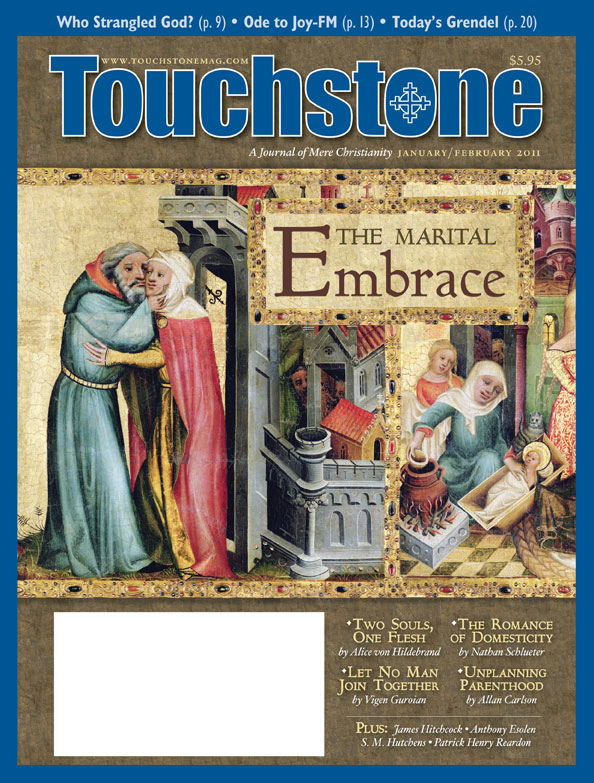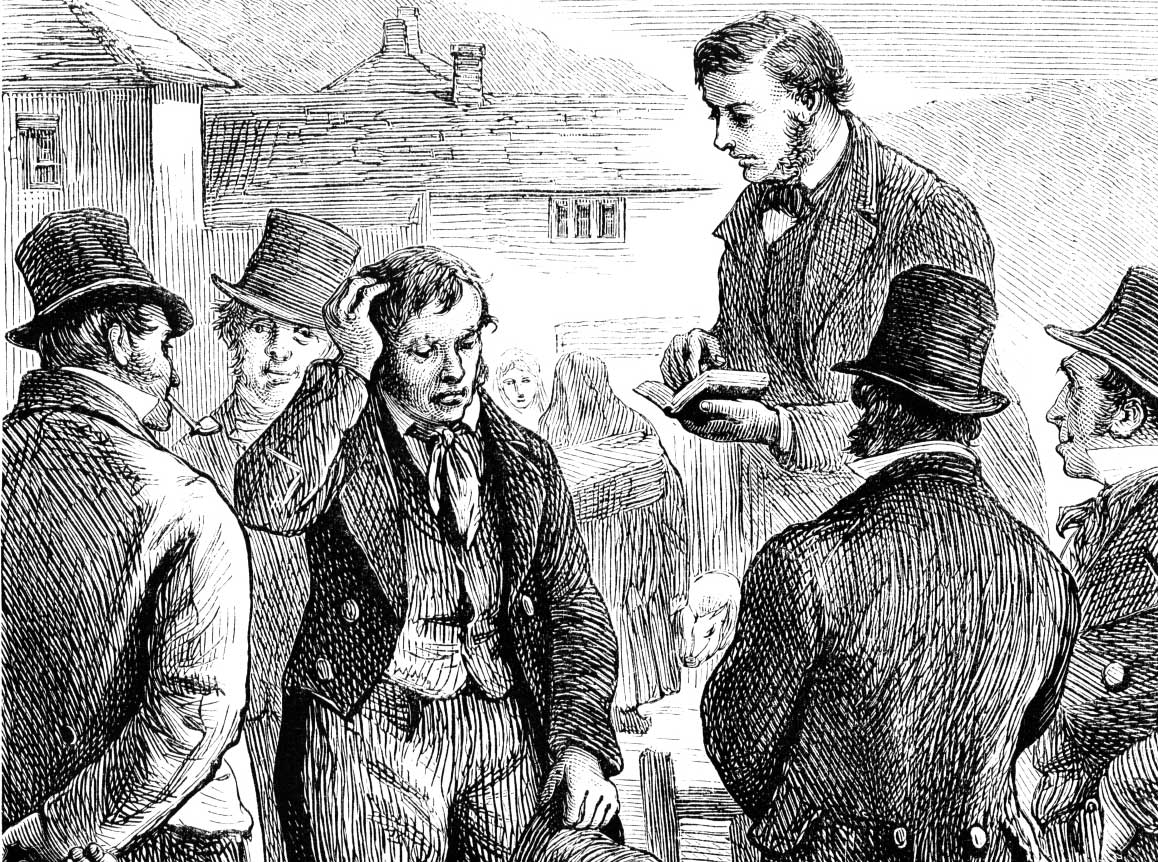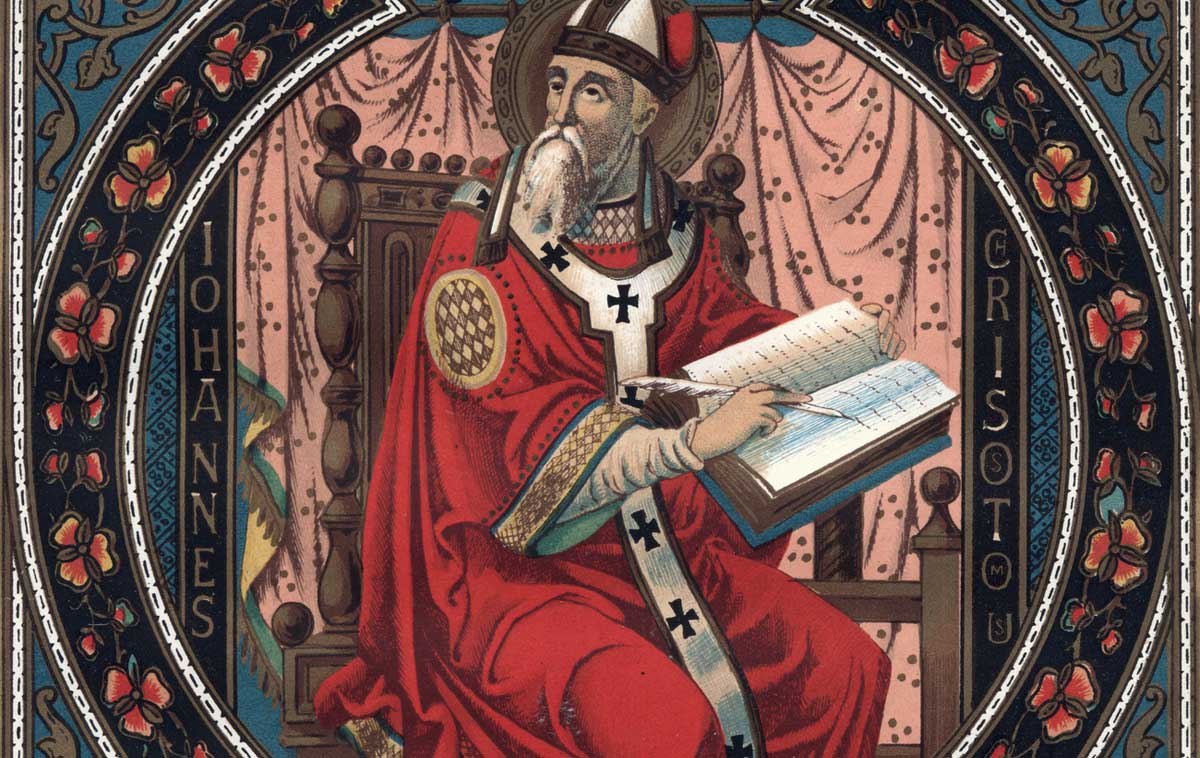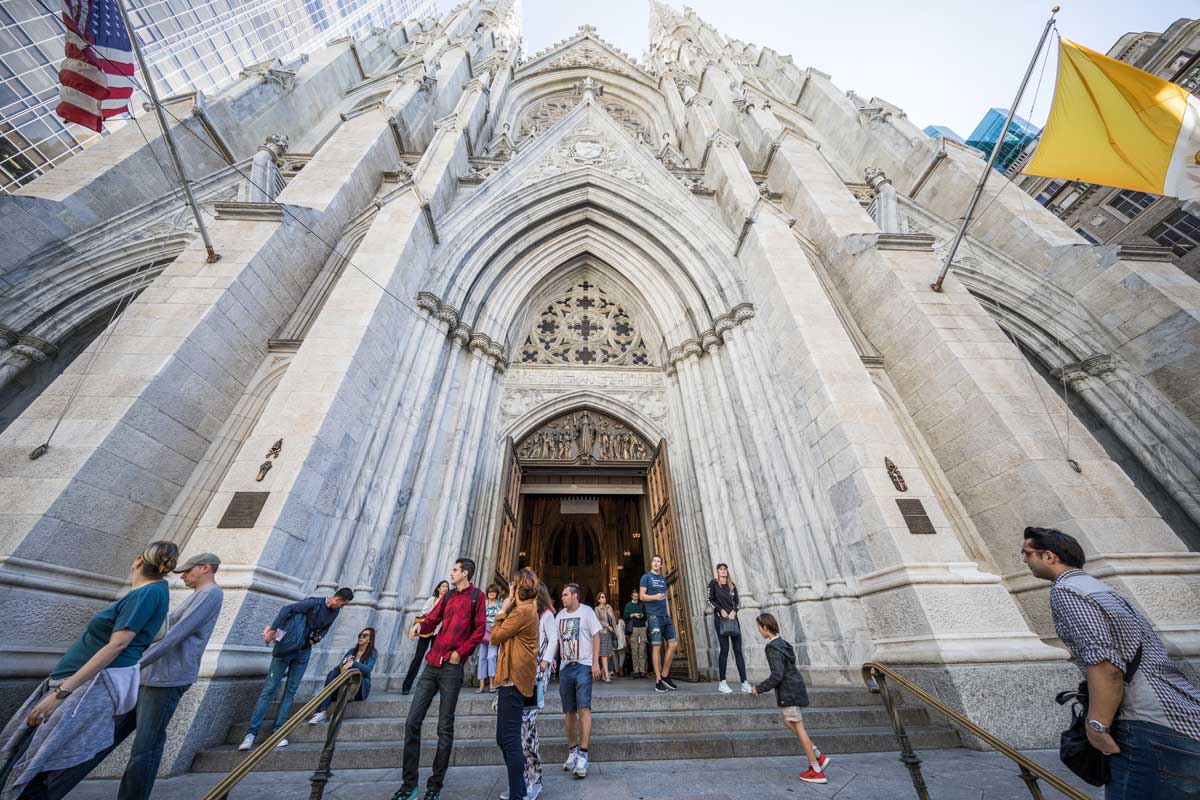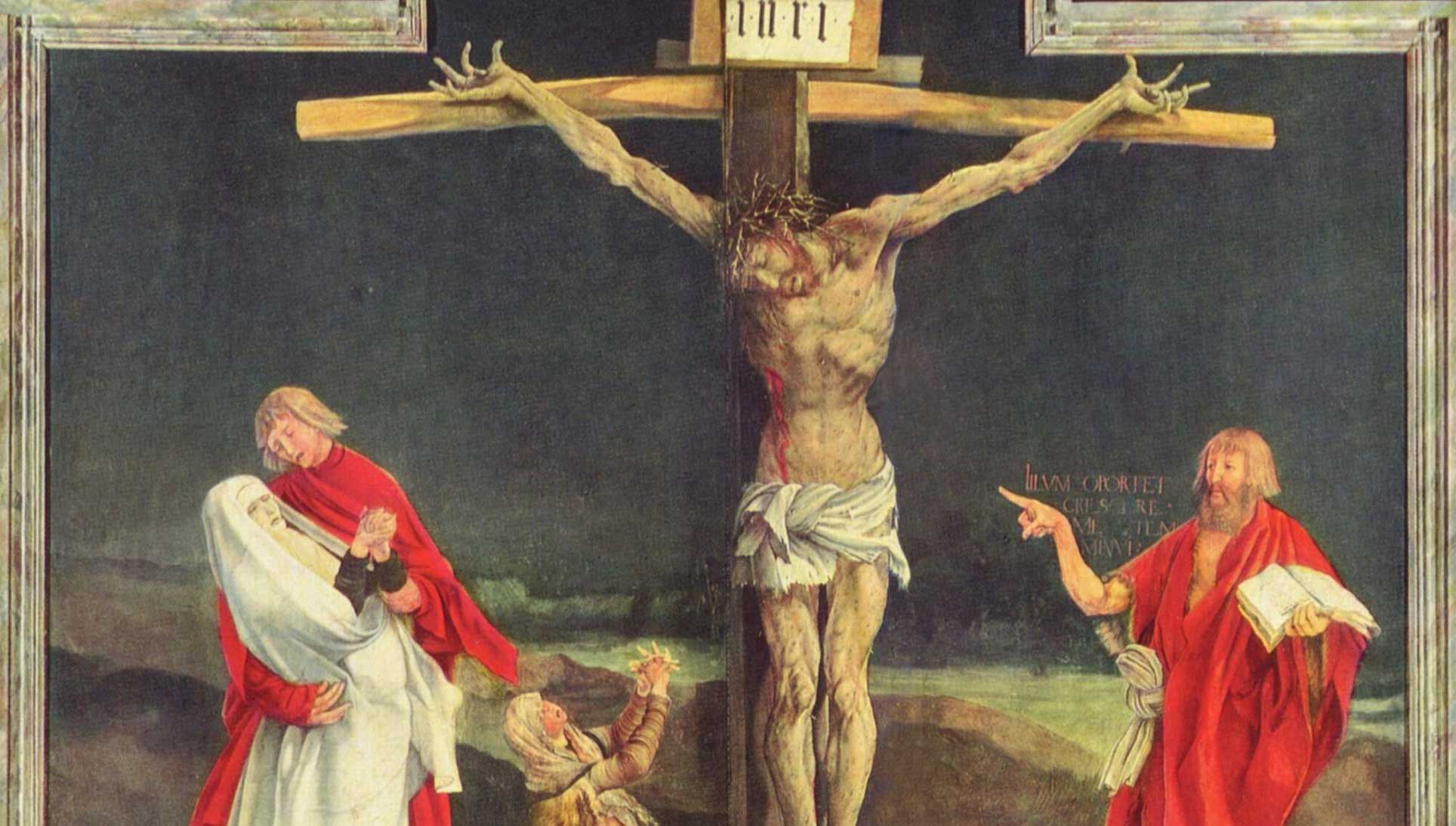Feature
The Romance of Domesticity
Marriage Thrives in Reality, Not in Our Dreams
by Nathan Schlueter
I am honored to be asked to deliver the annual Last Day Lecture here at Hillsdale College, and to be included among the distinguished faculty who have gone before me. This is a formidable subject for a lecture. It requires one to think about and imagine an unpleasant event: death. For me, however, the assignment is not as daunting as it might be for others. As my last name suggests, I have German in my blood, which means I often think about death.
I wish I could describe this as a philosophical experience, in the way that Socrates describes philosophy in The Phaedo, as “learning to die.” Then I would deliver an impersonal lecture on some fine point of philosophy, such as the adequacy of St. Thomas Aquinas’s arguments for the existence of God, or the perverse effects of Kantian deontology on contemporary ethics.
But no, this experience of mine has all the marks of a German thing, not a Greek one. It involves the silent mourning of the passing of time, of the rapidly closing circle of possible selves into a solid and fixed point. I never cease to be stunned, even scandalized, by photographs of the aged when they were young: How could that smooth flesh, straight form, and clear eyes have suffered a sea-change into this faded, wrinkled man propped up in a wheelchair? I think of the inevitable unfolding of my own future.
And yet to look on death is to look on reality. To be human, to be an embodied soul, means to suffer time, change, and death, and our responses to these experiences are determinative of how we will live, and ultimately, of our happiness. So my lecture cannot be about learning to die in the Socratic sense. It is rather about learning to live in the Christian sense, and this means seeing reality as it is.
The (very) loose model of my reflections is The Confessions of St. Augustine, in which personal experiences of time, change, suffering, and death are illuminated by the mysteries of Creation, Incarnation, and Redemption. As with Manicheanism in the time of Augustine, so in our own time there lurks a dangerous heresy that twists both the truth and a good many lives. I call that heresy Romanticism.
By Romanticism I mean the impulse to escape, through passionate idealization and fancy, from the real world of mortal man, the world of suffering and change, the world of what it means to be in a body with concrete limits. Gustave Flaubert provides an exemplary model of the essential pattern of this sort of Romanticism in his novel Madame Bovary, especially in his depiction of the heroine, Emma Bovary. He also subjects it to a devastating, if rather hopeless, critique. That pattern has five features.
The Five Features of Escapist Romanticism
First, Flaubert locates Romanticism in a disordered imagination. Like Plato, Flaubert was profoundly aware of the essential connection between the imagination and desire, and of the singular power of art to shape the imagination. He describes in detail the influence of the popular romance novels of the day on Emma’s conception of happiness, especially in marriage, an influence that ultimately proves her undoing.
Before marriage she thought herself in love; but since the happiness that should have followed failed to come, she must, she thought, have been mistaken. And she tried to find out what one meant exactly in life by the words bliss, passion, ecstasy, that had seemed so beautiful to her in books.
Nathan Schlueter is Associate Professor of Philosophy at Hillsdale College in Michigan, where he lives with his wife and six children. He is currently writing a book entitled Utopian Fiction: Recovering the Political Science of the Imagination. His latest book, The Humane Vision of Wendell Berry (ISI Books), will be out this spring.
subscription options
Order
Print/Online Subscription

Get six issues (one year) of Touchstone PLUS full online access including pdf downloads for only $39.95. That's only $3.34 per month!
Order
Online Only
Subscription

Get a one-year full-access subscription to the Touchstone online archives for only $19.95. That's only $1.66 per month!
bulk subscriptions
Order Touchstone subscriptions in bulk and save $10 per sub! Each subscription includes 6 issues of Touchstone plus full online access to touchstonemag.com—including archives, videos, and pdf downloads of recent issues for only $29.95 each! Great for churches or study groups.
Transactions will be processed on a secure server.
more on marriage from the online archives
more from the online archives

15.6—July/August 2002
Things Hidden Since the Beginning of the World
The Shape of Divine Providence & Human History by James Hitchcock
calling all readers
Please Donate
"There are magazines worth reading but few worth saving . . . Touchstone is just such a magazine."
—Alice von Hildebrand
"Here we do not concede one square millimeter of territory to falsehood, folly, contemporary sentimentality, or fashion. We speak the truth, and let God be our judge. . . . Touchstone is the one committedly Christian conservative journal."
—Anthony Esolen, Touchstone senior editor







